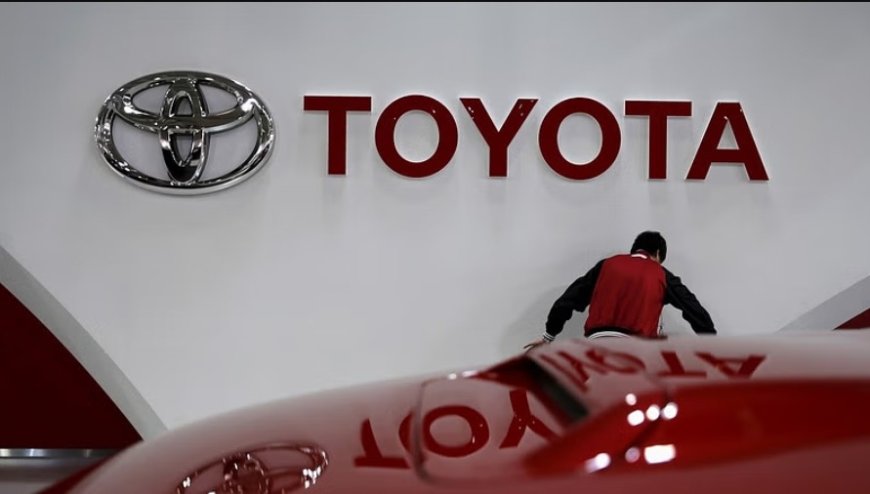Toyota Recalls Cars: What Drivers Need to Know

Introduction
Toyota, a global leader in automobile manufacturing, is known for producing reliable, high-quality vehicles. However, even the most reputable carmakers are not immune to manufacturing defects and safety issues. Over the years, Toyota has initiated several vehicle recalls, affecting millions of drivers worldwide. These recalls are not necessarily a reflection of poor quality but part of the industry's commitment to safety and accountability.
This article explores the reasons behind Toyota’s vehicle recalls, the most recent and significant recall campaigns, how they affect consumers, and what steps you should take if your car is recalled. We’ll also include helpful tables and lists to organize key information clearly.
Why Do Automakers Recall Cars?
A recall is an action taken by a car manufacturer to address a defect that may affect vehicle safety, compliance with regulations, or performance. Recalls are usually voluntary and may be initiated after customer complaints, internal investigations, or regulatory agency findings.
Common Reasons for Recalls
-
Faulty airbags
-
Brake malfunctions
-
Fuel pump issues
-
Electrical system failures
-
Steering defects
-
Engine stalling
-
Seatbelt flaws
Recalls aim to correct these issues before they result in accidents, injuries, or fatalities.
Recent Toyota Recalls and Their Impact
Toyota has recalled several million cars in the last decade, often as part of proactive safety measures. Below is a summary of some significant recent recalls.
Major Toyota Recalls (Past 5 Years)
| Year | Affected Models | Issue | Number of Vehicles | Description |
|---|---|---|---|---|
| 2020 | Corolla, Camry, RAV4 | Fuel pump failure | 3.2 million | Could cause engine stalling while driving |
| 2021 | Prius, Avalon | Software glitch | 266,000 | Hybrid system may shut down unexpectedly |
| 2022 | Highlander | Brake booster issue | 279,000 | Reduced braking performance |
| 2023 | Tacoma, Tundra | Steering column defect | 158,000 | Risk of steering loss |
| 2024 | Corolla Cross, Lexus RX | Airbag malfunction | 1.1 million | Passenger airbags may not deploy |
How to Know if Your Toyota Is Recalled
Steps to Check for Recalls
If you own a Toyota, it's important to stay informed about any potential recalls. Here’s how:
-
Use Toyota’s Recall Lookup Tool:
Visit Toyota’s official website and enter your Vehicle Identification Number (VIN) to see if your car is affected. -
Register for Notifications:
Sign up for recall alerts through Toyota or government platforms like the NHTSA.gov. -
Contact Your Dealer:
Local dealerships can confirm whether your car is under recall and schedule a repair appointment. -
Watch for Official Letters:
Toyota sends mail notices to registered owners when a recall is issued.
What to Do If Your Toyota Is Recalled
-
Stay calm: Recalls are typically preventative and do not always mean your vehicle is currently unsafe.
-
Don’t ignore the notice: Failing to act on a recall could increase the risk of mechanical failure or accidents.
-
Schedule service promptly: Repairs are often free and handled at authorized dealerships.
-
Keep documentation: Maintain a record of recall notifications and repair invoices.
-
Monitor your vehicle: Even after the fix, stay alert for unusual behavior or performance.
Toyota’s Response Strategy
Toyota has earned respect for its proactive approach to safety issues. When a potential defect is identified:
-
Investigation: Engineers and quality control teams assess the risk.
-
Reporting: Toyota informs regulators like the National Highway Traffic Safety Administration (NHTSA).
-
Communication: Notifications are sent to dealers and vehicle owners.
-
Repairs: Toyota dealerships conduct repairs or replacements free of charge.
-
Follow-up: In some cases, Toyota performs follow-up inspections to ensure resolution.
Recall vs. Service Bulletin
| Feature | Recall | Technical Service Bulletin (TSB) |
|---|---|---|
| Definition | Mandatory repair for a safety defect | Manufacturer advice for known issues |
| Cost to Consumer | Free | May not be free unless under warranty |
| Notification Sent? | Yes | Sometimes |
| Safety-Related? | Yes | Not always |
| Required to Complete? | Strongly encouraged | Optional |
Impact on Toyota’s Reputation
Although recalls may initially seem damaging, Toyota has generally managed them with transparency and efficiency. By issuing voluntary recalls and taking responsibility, the company has reinforced its image as a reliable automaker that prioritizes consumer safety.
Some customers may view recalls as a red flag, but in truth, most automakers—including Ford, Honda, and General Motors—issue recalls regularly. What sets brands apart is how they handle them. Toyota’s strong customer service and expansive dealer network have helped mitigate backlash.
Tips to Prevent Recall-Related Stress
-
Regular Maintenance: Keep up with oil changes, brake inspections, and other routine care.
-
Stay Informed: Subscribe to Toyota newsletters or recall alerts.
-
Act Quickly: Don’t procrastinate if your vehicle is affected.
-
Ask Questions: Don’t hesitate to contact your dealer for clarification.
-
Check Used Cars: When buying a pre-owned Toyota, run a VIN check for past recalls.
Conclusion
Recalls are a critical component of automobile safety and corporate accountability. Toyota’s history of recalls reflects both the challenges of modern car manufacturing and the company’s ongoing dedication to correcting problems before they pose greater risks. By understanding what a recall means, staying informed, and responding appropriately, drivers can maintain confidence in their vehicles and continue to enjoy Toyota’s legacy of dependability.
Whether you drive a Corolla, Camry, RAV4, or Tacoma, being proactive about recalls ensures that your vehicle remains safe and roadworthy. Use the available tools to monitor your VIN, respond swiftly to notices, and trust Toyota’s extensive support network to make things right.




























